Theresa May’s "hard Brexit" speech to the Tory Party was a signal that Ireland will not emerge from the Brexit negotiations unscathed, writes Europe Editor Tony Connelly.
It will have grave implications for all of the issues the Irish Government worries about: the Good Friday Agreement, future trade with the UK and a hard border on the island of Ireland.
Not only did the British prime minister make it clear that Britain would sacrifice the Single Market in favour of cutting immigration, she also slapped down the notion that Scotland and Northern Ireland could maintain some meaningful relationship with the EU and its Single Market.
"Because we voted in the referendum as one United Kingdom," she told the faithful, "we will negotiate as one United Kingdom, and we will leave the European Union as one United Kingdom.
"There is no opt-out from Brexit. And I will never allow divisive nationalists to undermine the precious Union between the four nations of our United Kingdom."
Her choice of a hard Brexit was another blow for the Irish Government.
The annual bilateral trade in goods and services between both countries is over €60bn and it relies entirely on both countries being members of the Single Market.
"What people in Ireland are waking up to is that we have two trading relationships, one with the UK and one with the rest of the EU," says one source. "We are now going to get damaged in one, so we better make sure we don't get damaged in the other."
So, what can Ireland do to safeguard its interests once Article 50 is triggered some time before the end of March?
The first reality is that Ireland can not have a bespoke trade deal with the UK as our trading relationships are defined by membership of the EU.
The second is that Ireland will have to walk a tight rope: asserting on the one hand that our core policy is alignment with the new EU27, while unavoidably being the country with the closest historical, cultural and political links with the UK on the other.
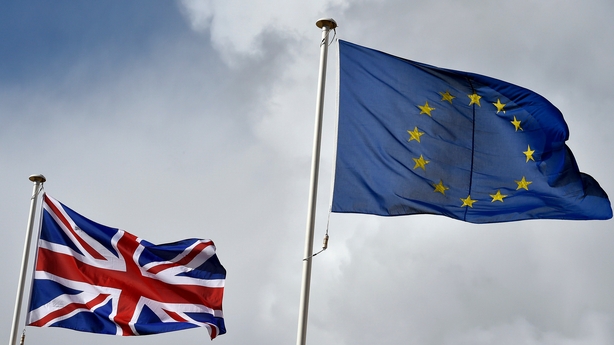
For the moment, the mantra from EU capitals is that there can be no negotiation with the UK until it triggers Article 50.
Some will watch with suspicion the institutional dialogue between Britain and Ireland through the Good Friday Agreement structures and wonder if Britain is using it to pick the Irish off.
That being said, there is a strong degree of awareness within the European Commission and the European Council, which represents the other 27 EU leaders, of Ireland’s unique vulnerability to Brexit, economically and especially in terms of the peace process.
An informal paper, obtained by RTÉ News, has been circulated among the negotiating teams both within the Commission and the Council.
It sets out in detail the complexities of Ireland’s relationships, north and south, and how they are underpinned by EU membership, not just through the billions of euro in Peace II funding, as well as structural and regional transfers, but also through the "sense of pooled sovereignty including a shared European identity" which provides, amongst other things, "crucial reassurance to the minority nationalist community".
The paper also points out that the Good Friday Agreement is based on the "assumption of the continuation of EU membership by both the UK and Ireland" and that since the Agreement recognises all citizens of Northern Ireland as having the entitlement to consider themselves Irish, it means that every person from Northern Ireland is potentially a citizen of an EU member state "including after the UK exits the EU."
These points have already been made on numerous occasions by Irish ministers. The hope is that they will be kept to the fore when the negotiations start.
When the Irish Government can get its "clean tackles" in will depend on how the negotiations are organised.
Under Article 50, the European Commission will take the lead in the technical negotiations, while the European Council apparatus, with its own team, will keep a political hand on the tiller.
On the Commission side, a task force is being assembled under Michel Barnier, a former French government minister and the European Commissioner in charge of financial regulation under former EC president José Manuel Barroso (once called "the most dangerous man in Europe" by The Sun newspaper).
The Commission team will be shadowed by negotiators from the European Council, again which represents the member states, led by Didier Seeuws, a veteran Belgian diplomat and former chief of staff to Herman Van Rompuy, the President of the Council until Donald Tusk took over in 2014.
Despite talk of a "turf war" between the Commission and the Council, it is assumed that they will work closely together.
The Council’s team will feed back the negotiating detail to the member states via Coreper, the Brussels-based committee made up of the 27 national ambassadors to the EU where the real grinding work is done.
The process will move further up the food chain to the European Council itself, in other words, the regular summits of EU leaders which take place in Brussels.
Even though Britain remains a full member of the EU until it leaves, British ministers, including prime minister Theresa May, will not be in the room when these formations are digesting the negotiations.
Ireland is hoping to ensure at least one, perhaps two Irish officials who work within the EU institutions will be seconded to Michel Barnier’s task force once it expands to around 50 staff.
Technically, EU officials are supposed to work for the European interest, so having staff within the task force would represent, at best, a comforting presence to Dublin.
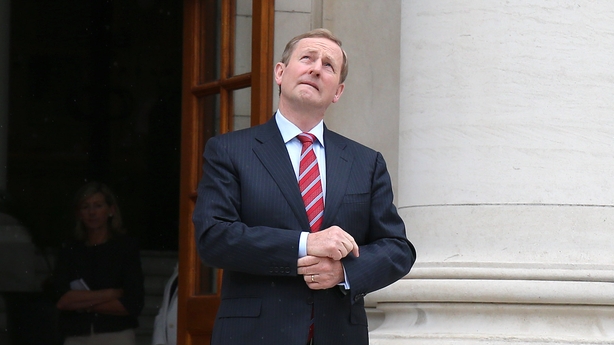
But the real impact Ireland will have in trying to shape the outcome will be through the political interventions of the Taoiseach and his team of officials both in Dublin and in Brussels as they become involved in the process through the normal machinery of the European Council.
And there’s the rub…
Enda Kenny is extremely well liked among EU heads of government, not least through his long involvement within the European People’s Party (EPP), the centre right family in European politics.
He is also a seasoned negotiator. When 27 EU leaders met on 29 June in the aftermath of the shock Brexit vote, their statement included a declaration that Britain could not remain a member of the Single Market unless it abided by the four freedoms, including freedom of movement.
The declaration was inserted at the highest political level, i.e. by the 27 leaders themselves during the discussion, not by officials.
It was noted at the time that Mr Kenny had signed up to the principle, and had repeated it in his news conference following the summit.
However, due to the internal machinations of the Fine Gael Party, there is every possibility that Enda Kenny could quit the scene at the very moment the Brexit negotiations get under way.
With Britain intending to leave the EU Customs Union, the prospect of a hard border in Ireland is now a reality. So far, there have been blithe reassurances from London that such an eventuality can be avoided.
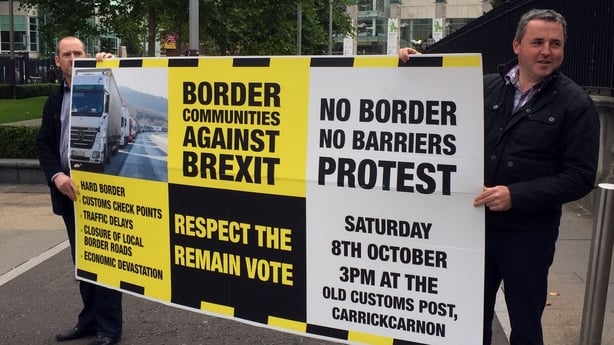
However, there is no indication whatsoever that Britain understands how this can happen.
After a meeting between Ms May and the Taoiseach, a senior EU official asked the British side how they could square the lack of a hard border with Britain leaving the Customs Union.
According to the official: "They replied, 'We don't know, we don't have an answer'".
It is understood there is some confidence within the Government that a way can be found around the question of passport checks on the border.
Officials may well look to the Nordic Passport Union as a model.
It allows free movement of people between, for example, Norway (not an EU member) and Sweden (which is), and provides residency assurances for citizens of the member countries (Iceland, Denmark, Norway, Finland and Sweden).
Both Norway and Sweden are in Schengen, further enhancing passport free controls.
The fact that neither Ireland nor the UK are in Schengen has, likewise, facilitated passport free movement.
But the real problem post-Brexit is not the "travel" part of the Common Travel area, but what happens to the rights and legal status of the people, goods and services which currently move freely across the border in both directions.
To give but two examples, officials have wondered what will happen to milk which is produced on one side of the border and processed on the other, or to pigs which are raised on one side and slaughtered on the other.
If Northern Ireland is out of the EU and its Single Market, then all the regulations which facilitate that free movement will no longer apply. Squaring that circle will be extremely difficult.
As the informal paper, circulated among EU negotiators, points out: "Any reintroduction of a hard border on the island of Ireland would have a devastating impact on Northern Ireland and in particular on the thousands of people whose daily existence is a cross-border one."
One suspicion is that Theresa May will not want to grant any concessions on these issues to Northern Ireland as they would immediately be jumped upon by the Scottish nationalists.
Ms May's attack on "divisive nationalism" during the Tory Party conference was aimed at the SNP, but by denying any concessions to Scotland she was effectively throwing Northern Ireland under a bus.
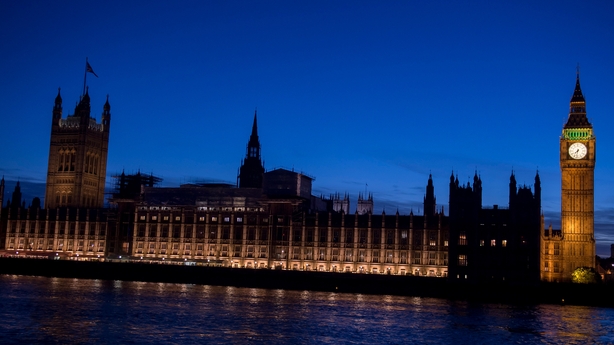
If things get to a critical point during the negotiations, we can expect a whispering campaign from the tabloid press and the Tory commentariat that it would be in Ireland's interests to follow Britain out of the EU.
"They'll make it hard for us to stay in," says one source. "That would solve the North issue and weaken the EU. The UK is in a weak position and they'll have to play every card they have. And we're a card."
As the negotiations progress other issues will arise that will pose real problems for Ireland.
Energy, fisheries to be areas of major concern
Energy will be a big issue. Ireland gets most of its energy from the UK. Will there be tariffs on energy if Britain is outside the Single Market, and how will that effect Irish energy prices?
Fisheries will also be a problem. The demarcations of British territorial waters have never been properly clarified; when both countries were members of the EU and its Common Fisheries Policy it did not matter.
Now it will.
The same applies to maritime routes for shipping.
"It's a mess and a nightmare," says one source. "The Brits will be hoping some things are just not discussed."
How brutal the impact is for Ireland will depend on how much of the negotiations are completed on time.
Under Article 50 the negotiation period lasts two years, and can only be extended by a unanimous vote of the EU27.
The first element is to negotiate a Withdrawal Treaty, the disentangling of 43 years of laws, rights and obligations that came with British membership of the EU.
After that comes the Framework Treaty, which will govern Britain’s future relationship with the EU, and its Single Market.
While there will be some parallel out workings of both processes, it is certain that a transition agreement will be needed to bridge between the conclusion of the Withdrawal Treaty and the final shape of the Framework Treaty, which could take many years.
Without a transition agreement British businesses – and by extension Irish exporters – would face a cliff as Britain would have to resort to becoming a "normal" member of the World Trade Organization in order to continue trading with the EU.
We would then be in the realm of tariffs and other trade barriers.
The assumption before Theresa May’s speech, encouraged by Brexiteer ministers, was that it was not in the EU’s interest to allow that to happen.
But the speech has changed attitudes. The mood in the European Parliament, which must give its consent to a final deal, has darkened, with deep irritation particularly on the centre left about the attitude in the UK.
While France has been pre-occupied by terrorism and next year's presidential election, it too promises to play hardball, with President Hollande urging in a speech on Thursday night that the European Union had to be "firm", otherwise "we will put into question the EU's principles."
The big French fear has been that Chancellor Merkel would go soft at the last minute and opt for a cake-and-eat-it deal for the UK.
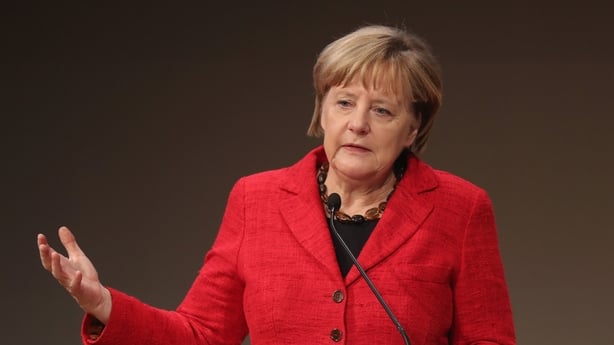
But the signals from Berlin are that Ms Merkel’s attitude has hardened. She has urged Germany’s business leaders to show solidarity towards the Single Market during the negotiations.
The hope by Brexiteers that the German car industry, presumably desperate to continue exporting to the UK, would keep Ms Merkel on a sympathetic footing now seems misplaced.
"British politicians should not assume that German policy is driven only by economic rationality," says Charles Grant, director of the London-based Centre for European Reform (CER).
"German industry would like a very close relationship with a post-Brexit UK, but does not necessarily determine policy. German manufacturers have spent the past two years lobbying against EU sanctions on Russia, without any impact."
Michel Barnier, the Commission’s chief negotiator, is expected in Dublin next week as part of his tour of the capitals. There will also be a summit of EU leaders in two weeks time.
On both fronts the Irish Government will have its work cut out to drive home the parlous situation the country faces.
Officials insist that Mr Barnier has been well appraised of Ireland’s situation and is sympathetic.
Ensuring that the people who matter have an understanding of our unique vulnerabilities this side of Article 50 being triggered is one thing.
It will be quite another in the heat of the negotiations themselves.







